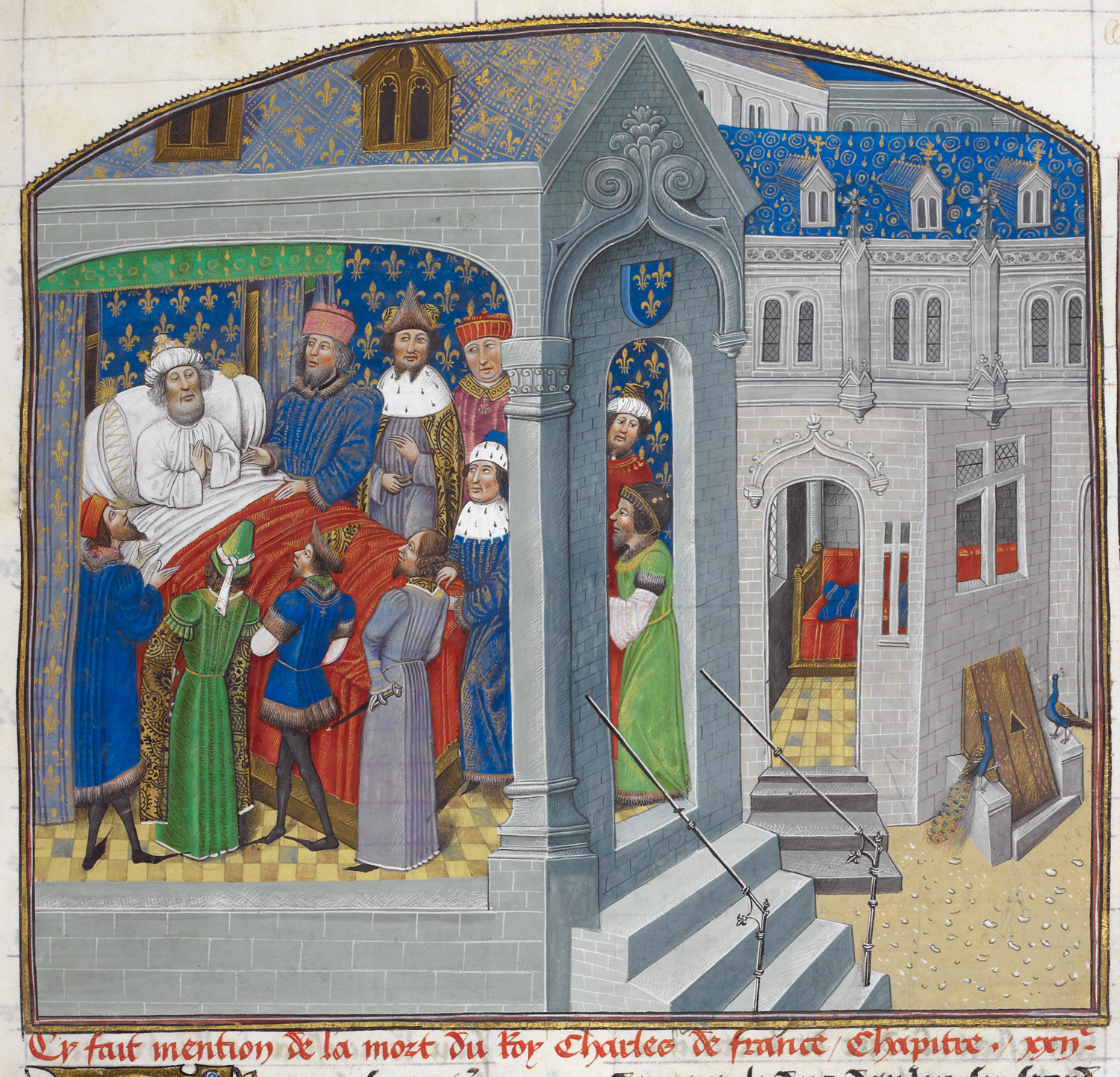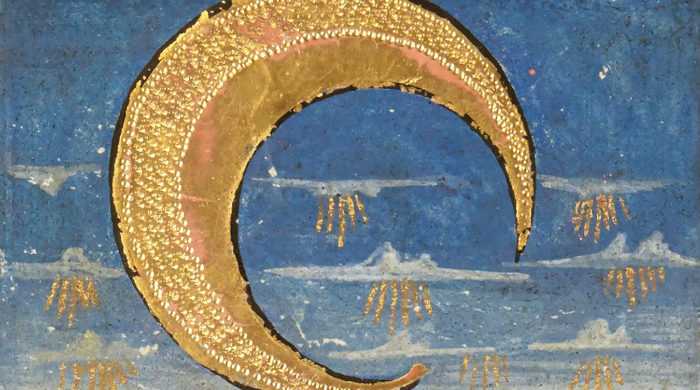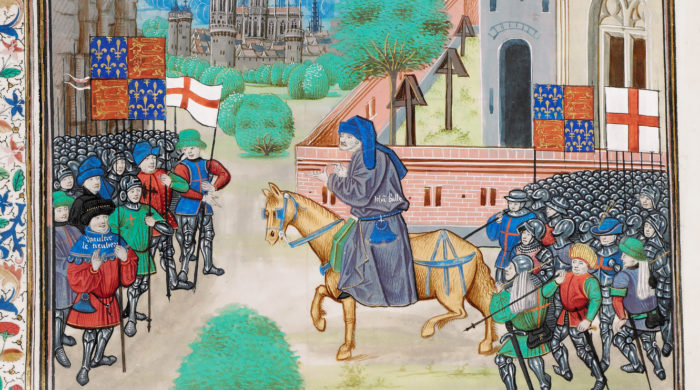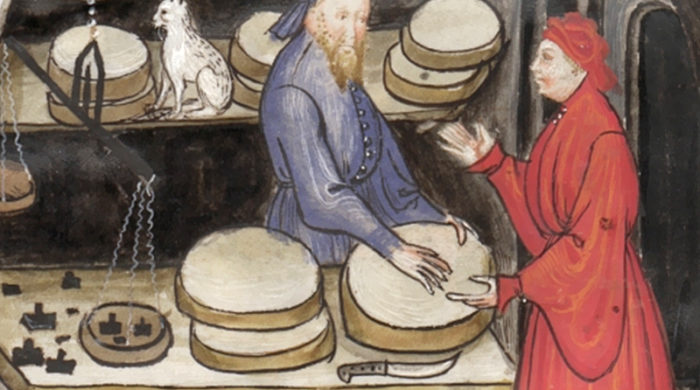Charles V of France

September 16, 1380: on this day, King Charles V of France died after 16 years of reign.
Despite his name being somehow overshadowed by the more famous Holy Roman Emperor of the same name, Charles V proved to be a crucial king for the history of France: First-ever prince of France to bear the title of Dauphin, his reign marked a high point during the Hundred Years' War: thanks to his non-confrontational strategy, relying more on fortifications and resistance than military actions, France finally managed to recover from precedent military losses and regained much of the territory held by the English. The Bastille, moreover, was mostly built during Charles' reign; he was also the first to establish a permanent paid army, thus solving the problem on the companies of mercenaries who, at the time, used to raid the country whenever they were not at war.
Charles V was also a crucial figure leading to the Papal Schism that would divide Europe for almost 40 years. When Pope Gregory XI decided to move the papal court back to Rome after nearly 70 years in Avignon, Charles tried to dissuade him, hoping to keep a certain influence on the papacy. Gregory refused and moved to Rome in 1377, but died the following year, leaving the French cardinals the opportunity to re-elect a French pope and move back the court to Avignon. The people of Rome, however, rose up - surrounding the Vatican and demanding an Italian pope that would remain in Rome: Pope Urban VI was thus elected. The French cardinals, however, quickly declared this election invalid because of mob intimidation, thus electing Pope Clement VII (later referred to as Antipope). Charles V recognized his papacy and forbade any obedience to Urban, thus initiating the Schism.
He suffered from an abscess on his right arm, possibly caused by the alleged attempted poisoning he had been subject to in 1359. His doctors had warned that the abscess was extremely dangerous and would lead him to a quick death if it ever dried up. The King, however, managed to live with this illness for more than 20 years until, in early September 1380, the abscess eventually dried up: as anticipated by the doctors decades before, Charles V died soon after. He was succeeded by Charles VI, his 11-year-old son, whose disastrous reign allowed the English to regain control of the war and conquer large parts of France.
"Death of Charles V of France", illumination from the manuscript "Recueil des croniques d’Engleterre", ms. Royal 14 E IV, f. 64r, ca. 1470-1480, British Library, London.
Un piccolo passo per un uomo, un grande balzo per l'umanità. Dopo aver…
July 15, 1381: the English priest John Ball is hanged, drawn, and quartered because…
Did you know that even cheeses have birthdays? Well, at least that is…


